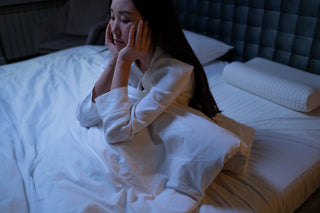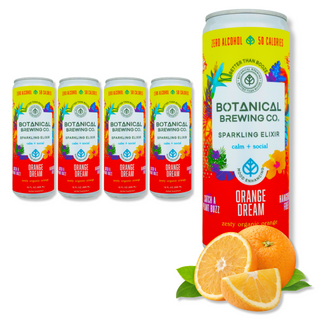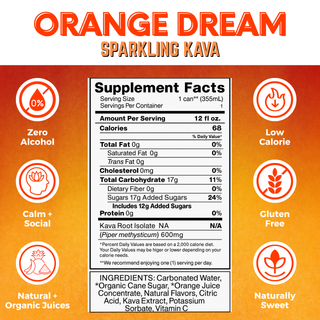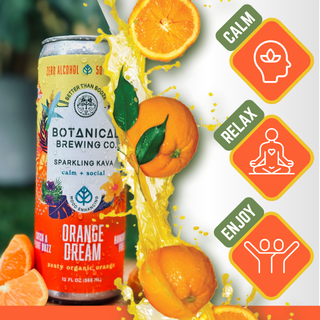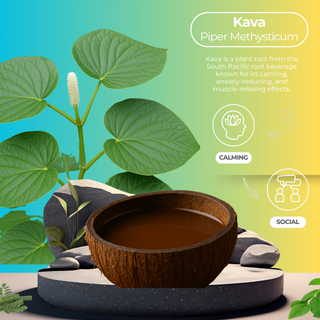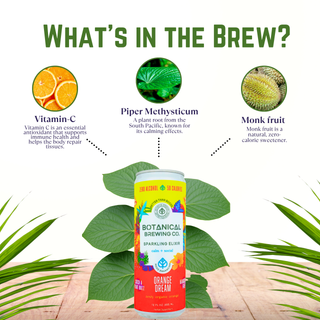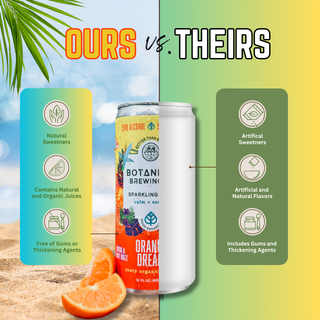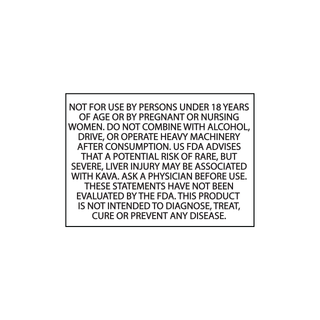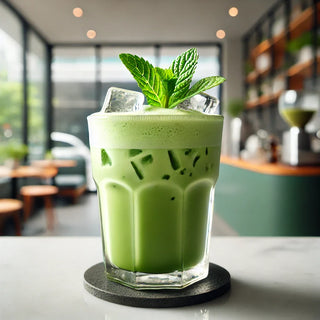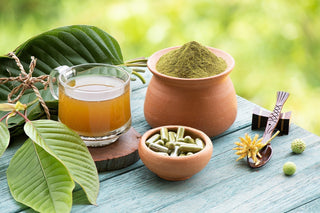Insomnia is a common sleep disorder that affects up to 30% of adults. Symptoms include difficulty falling asleep, staying asleep, and waking up too early. The resulting sleep deprivation can negatively impact energy, mood, and overall health.
Chronic insomnia is linked to impaired concentration, low productivity, increased errors, and accidents. This epidemic of sleeplessness calls for accessible, safer remedies that work in harmony with the body's natural sleep-wake cycles.
With increasing demands of modern life, more people are turning to natural remedies in hopes of enhancing sleep. This is where the intriguing relationship between kava and insomnia comes into play.
Botanical Brewing Co. is dedicated to creating delightful plant-based drinks as healthy, rewarding alternatives to alcoholic beverages. We're committed to exploring the potential benefits of natural ingredients, like kava, for promoting wellness and vitality. As public interest grows around herbs and supplements for sleep, we aim to apply our expertise in crafting premium kava-infused offerings for relaxation and restful slumber.
Is Kava Kava Good for Insomnia?

Herbs for insomnia kava have been valued in Pacific Island cultures for centuries, cherished for their ability to soothe and tranquilize. Communities across Fiji, Hawaii, Vanuatu, and beyond have traditionally turned to the kava root for insomnia, using it in ceremonies to foster relaxation and contentment.
Kava ceremonies play an important cultural role in bringing people together to strengthen social bonds and resolve conflicts through open discussion. The calming effects of kava allow participants to speak freely and honestly.
Today, as knowledge spreads about kava's potential to support sleep and relieve anxiety, it's gaining popularity in the West as a natural sleep aid and stress reducer. It's also being explored as an alternative to anti-anxiety medications which can have side effects and dependency risks.
Kava belongs to the pepper family and contains active compounds called kavalactones that are responsible for its psychoactive qualities. Research suggests kavalactones interact with brain receptors for GABA, a neurotransmitter that dampens activity in the central nervous system. This mechanism of action helps induce feelings of calmness and serenity.
Multiple studies confirm kava's ability to increase sleepiness and length of sleep in people with diagnosed sleep disturbances and anxiety issues. These preliminary findings indicate kava may hold promise as a gentle herbal therapy for managing insomnia.
Kava for Insomnia Relief: How Does It Work?
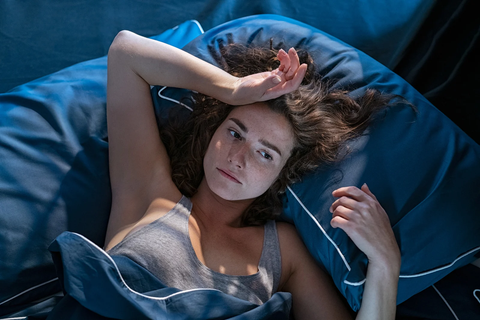
With increasing scientific validation around kava as a sleep promoter, how does it actually work to help relieve insomnia?
The root of the kava plant contains over 18 active kavalactones, including kavain, dihydrokavain, yangonin, and desmethoxyyangonin. These compounds are thought to be the source of sedative effects. That is why kava for insomnia is one of the best natural remedies.
Kavalactones have muscle relaxant, pain relieving, anticonvulsant, and anxiolytic properties. They appear to interact with different neurotransmitter systems and receptors in the brain responsible for excitability and stress response.
Specifically, kavalactones bind to GABA receptors and block the reuptake of noradrenaline in the brain. GABA is the brain's major inhibitory neurotransmitter, which counters excitatory nerve activity to induce relaxation and calmness.
Kavalactones also affect dopamine pathways, increasing dopamine levels in the brain. Dopamine is the "feel good" chemical associated with pleasure, motivation, and calmness.
The net result of kava's mechanisms is a reduction in anxiety, nervous system hyperactivity, and racing thoughts - all of which can interfere with sleep onset and quality. Kava brings about a sense of euphoria and tranquility that precedes sedation and sleep.
Is kava kava good for insomnia? The evidence suggests yes:
- A randomized controlled trial gave participants either a kava extract or placebo daily for 28 days. Those taking kava fell asleep more quickly and slept longer. They also reported significantly reduced anxiety.
- In another study, people with diagnosed insomnia were given kava for four weeks. At the end of treatment, they experienced improved sleep efficiency, quality, and duration compared to the control group.
- Research on patients about to undergo surgery found that 300 mg daily doses of kava reduced anxiety and increased total sleep time versus placebo over three weeks.
- For those struggling with insomnia, kava may help initiate sleep and prolong sleep by reducing anxiety, easing nervous system hyperactivity, and boosting calming neurotransmitters like GABA and dopamine.
How Kava is Used to Combat Insomnia: A Guide
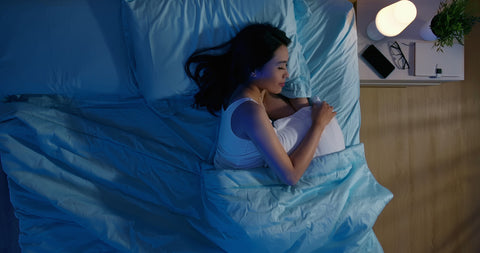
If you're considering kava dosage for insomnia, here's an overview of the different forms available and how to use them:
- capsules;
- tablets;
- liquid extracts;
- instant powders;
- teas.
Capsules offer convenient, standardized doses but can take over an hour to absorb. Tablets placed under the tongue dissolve faster for quicker effects. Tinctures and extracts provide versatility for blending into beverages or dropping under the tongue. Instant kava mixes well into water for fast prep, while teas allow you to sip slowly.
Does kava work for insomnia? Research indicates doses between 150mg - 300mg of kavalactones 30-60 minutes before bedtime are effective for sleep benefits. It’s best to start low at around 150mg and increase slowly if needed. Taking kava too soon before lying down can have a stimulating effect.
Kava is not meant for ongoing, daily use but rather occasional sleep support as needed. Experts recommend taking regular breaks from kava and insomnia use for a week or two to avoid developing a tolerance. Chronic heavy use can lead to dependency and liver toxicity in rare cases.
For best results, look for kava sourced from the whole root, not just stems and leaves. Products verified for high kavalactone content by lab testing ensure safety, potency, and effectiveness of best kava for insomnia. Stay hydrated when using kava, as the kavalactones can have a mild diuretic effect. Avoid combining kava with other herbs or medications that cause drowsiness.
At Botanical Brewing Co., we take pride in our carefully crafted kava offerings like our fan-favorite Peach on the Beach botanical brew. Our brewmasters search the globe to source premium nobility kava revered for its rich kavalactone profile and sleep-promoting qualities. We gently extract the active ingredients to craft a delicious, rewarding drink for unwinding and easing into slumber. Give our kava drinks a try for a soothing alternative to help quiet your mind before bed. Products are available in cans for grab-and-go relaxation.
Conclusion: The Potential of Kava for Insomnia Relief
For those struggling with restless nights, kava shows promising potential as a natural sleep aid that may help initiate, prolong, and improve sleep. Its active components appear to interact with brain receptors involved in relaxation, anxiety reduction, and sedation. Current evidence and traditional use suggest that kava is good for insomnia and may be an effective treatment for it.
As a company dedicated to plant-based wellness, Botanical Brewing Co. encourages consumers to thoughtfully explore natural options like kava to enhance health and address issues like poor sleep. We're proud to offer premium kava-infused drinks using time-honored extraction methods for optimal quality and potency. Our commitment to sourcing and crafting the finest herbal ingredients drives our mission to innovate exceptional non-alcoholic offerings.


